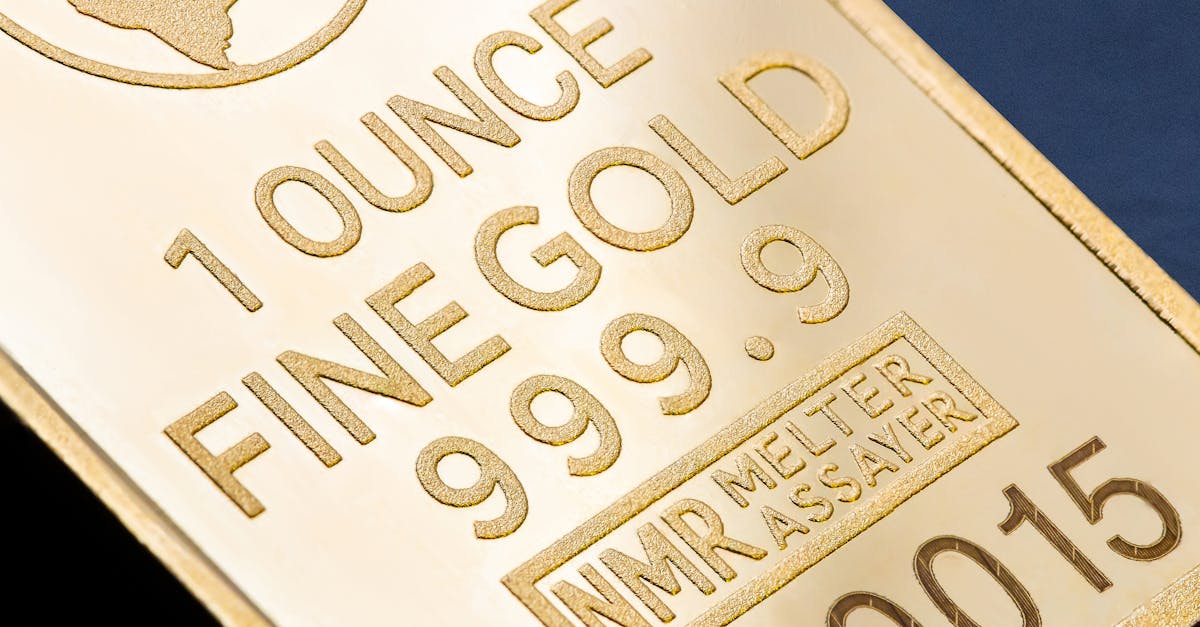Automating Gold Operations: The RPA Revolution in the Bullion Market

Robotic Process Automation in the Gold Market: Unleashing Efficiency and Precision
The gold market, a cornerstone of the global financial landscape, is undergoing a transformative shift with the advent of Robotic Process Automation (RPA). RPA is poised to revolutionize gold operations, offering a myriad of benefits and propelling businesses to new heights of efficiency and profitability.
As gold prices fluctuate and market dynamics evolve, businesses must embrace innovative solutions to stay competitive. RPA provides a competitive edge, enabling the automation of repetitive and time-consuming tasks, freeing up human capital to focus on strategic initiatives that drive business growth.
keyinsight heading name in English
5 Key Insights on RPA in the Gold Market
- RPA offers significant benefits in the gold market, including improved accuracy, efficiency, cost reduction, enhanced compliance, and the ability to automate repetitive tasks.
- RPA can be applied to a wide range of gold management tasks, including inventory management, order processing, regulatory compliance, risk assessment, and gold price forecasting.
- RPA can enhance gold price forecasting by automating data collection and analysis from multiple sources, providing businesses with a comprehensive understanding of market factors.
- Successful RPA implementation in the gold market requires careful planning, selection of the right RPA tool and vendor, establishment of a governance framework, and adequate training and support.
- Emerging trends in RPA for the gold market include cloud-based RPA solutions, integration with AI and ML technologies, and the development of new applications that leverage RPA to automate complex gold market operations.
1. Introduction to RPA in Gold Market
Introduction to RPA in Gold Market: Setting the Stage for RPA in the Gold Market, Highlighting Its Significance and Potential Benefits for Businesses Operating Within This Domain.
The gold market, a pillar of the global financial system, is on the cusp of a transformative revolution with the advent of Robotic Process Automation (RPA). RPA is poised to redefine gold operations, offering a wealth of benefits and propelling businesses to new heights of efficiency and profitability.
RPA, with its ability to automate repetitive and time-consuming tasks, frees up human capital to focus on strategic initiatives that drive business growth. In the gold market, RPA can streamline a wide range of operations, including inventory management, order processing, and regulatory compliance. By leveraging RPA, businesses can significantly improve accuracy, reduce costs, and gain a competitive edge in the dynamic and demanding gold market.
2. Benefits of RPA in Gold Trading

Benefits of RPA in Gold Trading: Delving into the Specific Advantages of RPA for Gold Trading Operations, Encompassing Improved Accuracy, Efficiency, and Risk Mitigation
RPA offers a multitude of benefits for gold trading operations, empowering businesses to streamline their processes, reduce costs, and gain a competitive edge in the global gold market. One of the primary benefits of RPA is its ability to improve accuracy by eliminating human error from repetitive and complex tasks. RPA bots can process large volumes of data with precision, ensuring that trades are executed correctly and regulatory compliance is maintained.
RPA also significantly enhances efficiency by automating time-consuming tasks. This allows gold traders to focus on higher-value activities, such as market analysis and developing trading strategies. By automating repetitive tasks, RPA frees up traders’ time, enabling them to make more informed decisions and capitalize on market opportunities.
Risk mitigation is another key benefit of RPA in gold trading. RPA bots can monitor market data and identify potential risks, enabling traders to take proactive measures to mitigate losses. Additionally, RPA can enhance compliance with regulatory requirements by automating compliance-related tasks, reducing the risk of errors and ensuring that gold trading operations adhere to industry standards.
3. Automating Gold Management Tasks
Automating Gold Management Tasks: Exploring the Practical Applications of RPA in Automating Various Gold Management Tasks, Such as Inventory Management, Order Processing, and Regulatory Compliance.
RPA offers a wide range of practical applications in gold management, enabling businesses to automate various tasks and streamline their operations. One of the key areas where RPA excels is inventory management. RPA bots can automate the tracking of gold inventory, including the recording of incoming and outgoing shipments, real-time stock updates, and reconciliation with physical inventory. This automation improves accuracy, reduces the risk of errors, and provides businesses with a comprehensive view of their gold holdings.
Another area where RPA shines is order processing. RPA bots can automate the processing of gold orders, including order entry, trade execution, and settlement. This automation streamlines the order fulfillment process, reduces the time it takes to complete orders, and minimizes the risk of errors. Additionally, RPA can enhance regulatory compliance by automating compliance-related tasks, such as generating regulatory reports and ensuring adherence to industry standards.
Overall, RPA offers a multitude of practical applications in gold management, helping businesses to improve efficiency, reduce costs, and enhance compliance. By automating repetitive and time-consuming tasks, RPA frees up human capital to focus on more strategic initiatives that drive business growth and profitability.
4. RPA and Gold Price Forecasting

RPA and Gold Price Forecasting: Unveiling the Potential of RPA in Gold Price Forecasting, Discussing How It Can Enhance Predictive Modeling and Improve Investment Strategies
RPA has the potential to revolutionize gold price forecasting by enhancing predictive modeling and improving investment strategies. RPA bots can be trained on historical gold price data and market trends to identify patterns and make accurate predictions about future gold prices. This enables businesses and investors to make informed decisions about buying, selling, or holding gold, maximizing their returns and minimizing their risks.
RPA can also be used to automate the process of collecting and analyzing data from multiple sources, including market news, economic indicators, and social media sentiment. By leveraging RPA, businesses and investors can gain a comprehensive understanding of the factors that influence gold prices and make more informed investment decisions. Additionally, RPA can assist in the development of trading strategies by automating the execution of trades based on pre-defined rules and triggers.
Overall, RPA offers a range of benefits for gold price forecasting and investment strategies. By automating data collection, analysis, and trade execution, RPA empowers businesses and investors to make more informed decisions, improve their forecasting accuracy, and maximize their returns in the gold market.
5. Case Studies of RPA in Gold Market
Case Studies of RPA in Gold Market: Providing Real-World Examples of Businesses Leveraging RPA in the Gold Market, Showcasing Its Transformative Impact on Their Operations
Numerous businesses in the gold market have successfully implemented RPA to streamline their operations and achieve significant benefits. One notable example is a leading gold refinery that deployed RPA to automate its bullion inventory management process. By automating tasks such as inventory tracking, reconciliation, and reporting, the refinery reduced its inventory management time by 50%, improved accuracy by eliminating manual errors, and gained real-time visibility into its gold inventory.
Another successful RPA implementation was at a major gold trading firm. The firm used RPA to automate its order processing system, including order entry, trade execution, and settlement. This automation resulted in a 40% reduction in order processing time, improved trade accuracy, and enhanced compliance with regulatory requirements. Additionally, the firm was able to redeploy staff from repetitive order processing tasks to higher-value activities, such as market analysis and client relationship management.
These case studies demonstrate the transformative impact that RPA can have on gold businesses. By automating repetitive and time-consuming tasks, RPA frees up human capital to focus on strategic initiatives, improves operational efficiency, and enhances compliance. As a result, businesses in the gold market are increasingly turning to RPA to gain a competitive edge and achieve success in the dynamic and demanding global gold market.
6. Best Practices for Implementing RPA in Gold Market
Best Practices for Implementing RPA in Gold Market: Guiding Businesses Through the Best Practices for Implementing RPA in the Gold Market, Ensuring Successful Deployment and Maximizing Its Benefits
To ensure successful RPA implementation and maximize its benefits in the gold market, businesses should follow a set of best practices. Firstly, it is crucial to clearly define the business objectives and processes that RPA will be applied to. This involves identifying the specific areas where RPA can add value, such as automating repetitive tasks, improving accuracy, or enhancing regulatory compliance.
Secondly, businesses should carefully select the right RPA tool and vendor. There are various RPA tools available in the market, each with its own strengths and weaknesses. It is important to evaluate the features, capabilities, and scalability of the tool to ensure that it meets the specific requirements of the gold business. Additionally, choosing a reputable vendor with a proven track record in the gold market is essential for successful implementation and ongoing support.
Finally, businesses should establish a robust governance framework for RPA implementation. This includes setting clear roles and responsibilities, defining standards and procedures, and implementing ongoing monitoring and evaluation mechanisms. A well-defined governance framework ensures that RPA is implemented in a controlled and structured manner, maximizing its benefits while minimizing risks.
7. Future of RPA in Gold Market
Future of RPA in Gold Market: Exploring the Evolving Landscape of RPA in the Gold Market, Examining Emerging Trends and Potential Future Developments in This Rapidly Growing Field
RPA is poised to play an increasingly significant role in the gold market, with numerous emerging trends and potential future developments shaping its landscape. One notable trend is the growing adoption of cloud-based RPA solutions. Cloud-based RPA offers several advantages, including scalability, flexibility, and reduced infrastructure costs. This makes it an attractive option for gold businesses looking to implement RPA without the need for significant upfront investment.
Another emerging trend is the integration of RPA with artificial intelligence (AI) and machine learning (ML) technologies. This integration enables RPA bots to perform more complex tasks, such as data analysis, decision-making, and predictive analytics. By leveraging AI and ML, RPA bots can further automate gold market operations and provide businesses with deeper insights into their data.
Looking ahead, the future of RPA in the gold market appears promising. As RPA technology continues to evolve and new applications are discovered, businesses in the gold market are well-positioned to reap the benefits of this transformative technology. By embracing RPA and its emerging trends, gold businesses can streamline their operations, improve efficiency, and gain a competitive edge in the global gold market.
What are the key benefits of implementing RPA in the gold market?
RPA offers a range of benefits in the gold market, including improved accuracy and efficiency, reduced costs, enhanced compliance, and the ability to automate repetitive and time-consuming tasks, freeing up human capital to focus on more strategic initiatives.
What are some practical applications of RPA in gold management?
RPA can be used to automate a wide range of gold management tasks, such as inventory management, order processing, regulatory compliance, risk assessment, and gold price forecasting, enabling businesses to streamline their operations and improve their overall efficiency.
How can RPA enhance gold price forecasting?
RPA can enhance gold price forecasting by automating the collection and analysis of data from multiple sources, including market news, economic indicators, and social media sentiment. This enables businesses and investors to gain a more comprehensive understanding of the factors that influence gold prices and make more informed investment decisions.
What are some best practices for implementing RPA in the gold market?
To ensure successful RPA implementation in the gold market, businesses should clearly define their objectives, select the right RPA tool and vendor, establish a robust governance framework, and provide adequate training and support to their staff.
What are the emerging trends in RPA for the gold market?
Emerging trends in RPA for the gold market include the adoption of cloud-based RPA solutions, the integration of RPA with AI and ML technologies, and the development of new applications that leverage RPA to automate complex gold market operations.
keyinsight heading name in English
Table of Key Insights: RPA in the Gold Market
| Key Insight | Description | |—|—|—|:—| | Improved Accuracy and Efficiency: | RPA can automate repetitive and time-consuming tasks, reducing the risk of errors and improving overall operational efficiency in the gold market. | | Cost Reduction: | By automating tasks and reducing the need for manual labor, RPA can significantly reduce operating costs for gold businesses. | | Enhanced Compliance: | RPA can assist businesses in meeting regulatory requirements and ensuring compliance with industry standards in the gold market. | | Focus on Strategic Initiatives: | RPA frees up human capital from repetitive tasks, allowing them to focus on more strategic initiatives that drive business growth and profitability. | | Integration with Emerging Technologies: | RPA can be integrated with AI and ML technologies to enhance gold price forecasting and automate complex gold market operations.